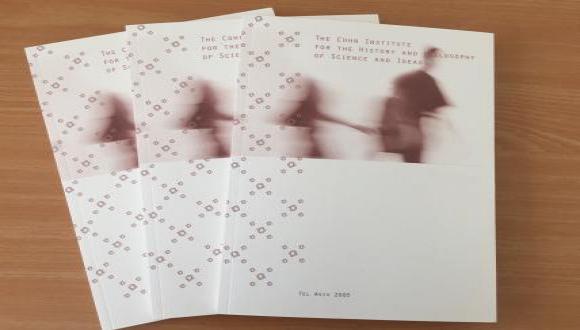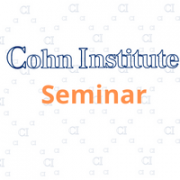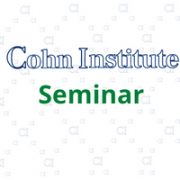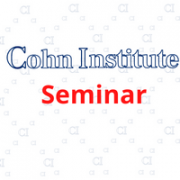Research seminar March 22nd: Elisabeth Lloyd (Indiana University) and Tamar Schneider (Cohn Institute): Understanding the Evolution of Holobionts: Reciprocal and Non-Reciprocal Evolution
Research seminar March 22nd: Elisabeth Lloyd (Indiana University) and Tamar Schneider (Cohn Institute): Understanding the Evolution of Holobionts: Reciprocal and Non-Reciprocal Evolution
יום ב', 22/3/2021 - שעה 18:00
Elisabeth Lloyd
(Indiana University)
Understanding the Evolution of Holobionts: Reciprocal and Non-Reciprocal Evolution
I address the controversy in the literature concerning the definition of holobionts and the apparent constraints on their evolution using concepts from community population genetics, and suggesting their application and limitations. By using community genetic models, I show how conflict between genomes can, contrary to the popular claims, be self-limiting, while cooperation and mutualism tend to be self-accelerating. This bias in the evolutionary dynamic could contribute to explaining the absence of cheaters from natural mutualisms, although cheaters are predicted by gene-centered conflict theory to cause the evolutionary instability of mutualisms. Additionally, it may help explain the more frequent origin of mutualisms from parasitic than from free-living systems, an evolutionary trajectory opposite to that predicted by the predominant genome conflict theory. In other words, this is a case in which the selfish-gene conflict framework fails through its very conceptualization of the problem at stake.
Commentator: Tamar Schneider (The Cohn Institute)
המפגש ישודר בכתובת
https://us02web.zoom.us/j/84179592877?pwd=WlNLanJUUDgxdnE1Z2JwTjZRWkVOUT09
כדי לשמור על בטיחות סביבת הרשת נבקש מכולם להזדהות בשם מלא
ולהמתין בחדר ההמתנה לאישור
יו"ר: שאול קציר
הציבור מוזמן





